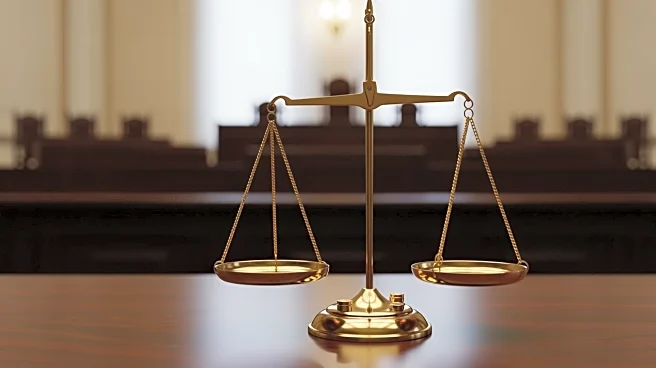What's Happening?
Maj. Gen. Rebecca Vernon, who had been serving as the acting Judge Advocate General (JAG) of the Air Force, has stepped down from her position. This follows the firing of Lt. Gen. Charles Plummer by Defense Secretary Pete Hegseth earlier this year. Vernon, who joined
the Air Force in 1996 and has been recognized for her legal expertise, will retire on January 1, 2026. Her departure leaves the Air Force without a Senate-confirmed JAG, a situation that has raised concerns about the impact on morale, retention, and policy decisions within the JAG Corps. Maj. Gen. Mitchel Neurock has been appointed as the acting JAG by Air Force Secretary Troy Meink.
Why It's Important?
The absence of a Senate-confirmed Judge Advocate General in the Air Force could have significant implications for the military's legal operations. The JAG plays a crucial role in advising commanders on legal matters, and the lack of permanent leadership may affect long-term planning and decision-making within the Corps. Additionally, the Pentagon's decision to send lower-level lawyers to serve as temporary immigration judges has raised concerns about military readiness. The situation underscores the importance of stable leadership in maintaining the effectiveness and morale of military legal services.
What's Next?
With Maj. Gen. Mitchel Neurock stepping in as acting JAG, the Air Force will need to navigate the challenges of operating without a Senate-confirmed leader. The appointment of a permanent JAG will require Senate confirmation, which could take time. In the interim, the Air Force must address the ripple effects on assignments, budgets, and policy decisions. The broader implications for military readiness and legal operations will continue to be a concern until stable leadership is established.
Beyond the Headlines
The transition in leadership within the Air Force JAG Corps highlights the delicate balance between military operations and legal oversight. The role of JAGs in providing guidance on U.S. and international laws is critical, and disruptions in leadership can affect the military's ability to navigate complex legal landscapes. The situation also raises questions about the administration's approach to military legal services and the potential impact on national security.
















